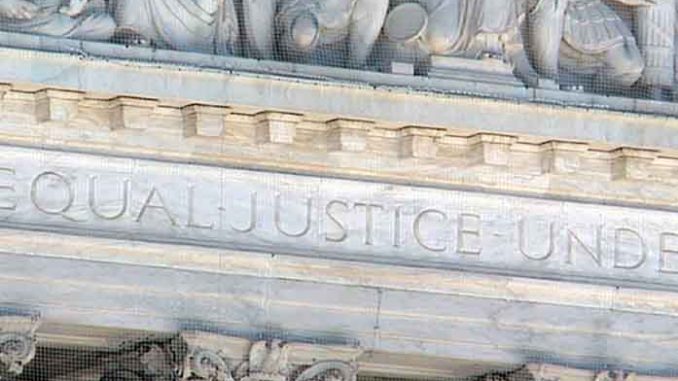
Several voters provided sworn testimony Thursday about their difficulties casting ballots on Election Day, but that doesn’t give a judge authority to order elections officials to change procedures or change a vote after the fact, according to attorneys for Maricopa County officials and Secretary of State Katie Hobbs.
Judge Daniel Kiley listened intently during Thursday’s evidentiary hearing as witnesses recounted their problems with the tabulation machines and their frustration with not knowing if all of the votes marked on their ballots were counted or not. The witnesses were called to by attorneys for President Donald Trump’s re-election committee and two Republican groups.
The judge even questioned some of the witnesses in an effort to better understand their experiences and directed some questions at the attorneys about what recourse there could be if poll workers unintentionally provided incorrect or incomplete explanations to voters on how to use the tabulation machines.
Yet despite a plea from the local attorney for Trump’s campaign that ballots may not have been properly counted in the presidential race, the options available to Kiley appear limited given that there was no evidence presented of any fraud, conspiracy, or systematic failures.
The issue before Kiley was how to reconcile the fact that Maricopa County officials have identified 191 ballots that were recorded as an overvote in the presidential race. An overvote occurs when the tabulation machine reads more filled ovals than is allowed for a specific race, and there is no manual review of an overvoted ballot if cast in person at a voting center.
In-person voters are given an option to correct an overvote before pressing a green button on the tabulation machine to formally submit the ballot. However, several witnesses told Kiley their ballots were rejected but no overvote was apparent on review. Other witnesses said they weren’t sure if their votes were counted or not.
Kory Langhofer, one of the attorneys for Trump and the Republican groups, asked Kiley to issue an order requiring Maricopa County Adrian Fontes to locate the stored images of 191 ballots on the election computer which have an overvote in the presidential race. The order would then allow for those ballots to be manually reviewed for possible inclusion in the vote count if the difference between Trump and Joe Biden could be impacted by those votes.
Thomas Liddy of the Maricopa County Attorney’s Office argued that those ballots have already been “counted” in the presidential race by having no vote cast due to an apparent overvote condition. He also argued that “it’s not enough just to find a mistake” on an occasional ballot or to show voter confusion.
Kiley ordered the evidentiary hearing so the parties could put forth evidence on whether “potentially thousands of voters across Maricopa County” may have had some votes disqualified in certain races, as the Trump-Republican lawsuit initially contended. However, as documents were exchanged among the parties the evidence appears to show only occasional overvote issues among the more than 165,000 votes cast in-person on election day.
The lawsuit has focused on the issue of how to redress overvote situations instead of why overvotes occurred. Many voters believe that ink bleed-through caused the tabulation machines to misread the ballots, something county officials have vigorously disputed.
But during his testimony, Scott Jarrett, Maricopa County’s Elections Director, admitted the Sharpie pens used at the voting centers can bleed-through. He insisted, however, that the tabulation machines are programed to not read those areas as stray marks or overvotes.
Kiley also heard from Gina Swoboda, state director for Trump’s campaign, about several reports she received from multiple voting centers about troubles with tabulation machines. She testified that on election day she had no reason to believe there could be problems with the machines reading ballots, but many of the complaints had similarities.
In another lawsuit a Maricopa County Elections Department employee signed a declaration estimating that as many as 80 percent of Election Day voters at one voting center had problems with the tabulation machines. That employee was not called to testify in this case.
It was also disclosed during testimony that the plaintiffs’ attorneys rejected a large number of declarations from supposed voters claiming to have been impacted by the tabulation machine problems. The developer of a website used to file those claims testified that the veracity of a few hundred of the online claims could not be confirmed.
Kiley granted the Arizona Democratic Party status to intervene in the case to argue against the lawsuit. He also accepted am amicus curiae briefs from the Lincoln Project in opposition of the Trump-Republican’s requested relief and from the Arizona Free Enterprise Club and Arizona Public Integrity Alliance in support of relief.
The judge said he will issue a formal decision in the coming days.
